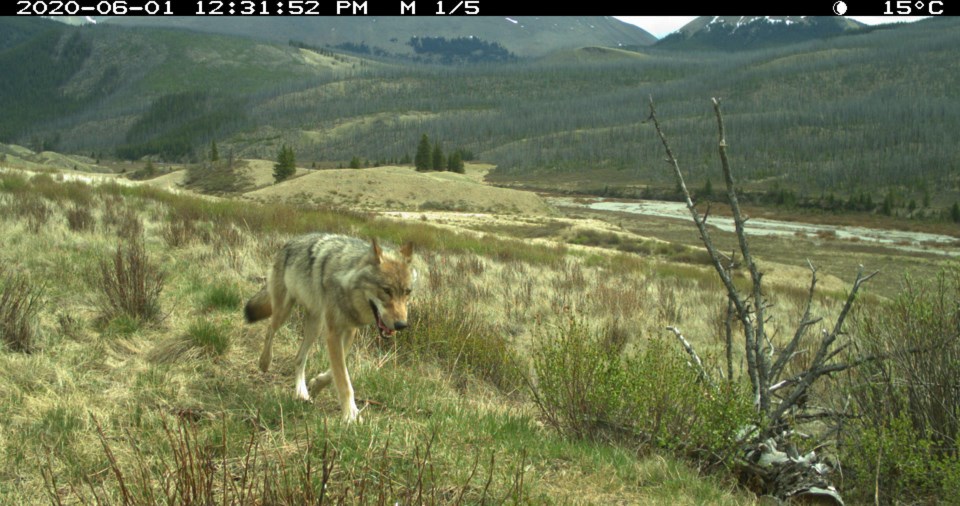BANFF – An explosion in human use is threatening wildlife populations around the world, leading to human-caused deaths and destruction or carved up habitat.
To avoid the same thing in Banff National Park, for the ninth year in a row, Parks Canada is putting in place the seasonal overnight closure of a 17-kilometre stretch of Bow Valley Parkway from March 1 to June 25 to give bears, wolves and other wildlife a predictable reprieve from people.
“It’s really that idea of giving wildlife half,” said Daniella Rubeling, visitor experience manager for Banff National Park.
“We want to give sensitive wildlife that evening dusk to dawn time so that they are not being disturbed and they can feed and raise their young.”
The mandatory March 1 to June 25 springtime travel restriction goes from 8 p.m. to 8 a.m. on the section from the Fireside picnic area near the Trans-Canada Highway-Bow Valley Parkway interchange to Johnson Canyon campground.
The seasonal overnight closure applies to all modes of travel – vehicles, bikes, hikers or other means. Only emergency services, law enforcement and designated Parks Canada staff will be able to access the area during the travel restriction for emergency purposes only.
All businesses and commercial accommodations remain accessible by the Trans-Canada Highway and the junction of the Bow Valley Parkway and Highway 93 South at Castle Junction.
Rubeling said the restriction first went into place in 2014.
“At the time when it was implemented it was kind of novel to close a road in the evening and now it seems normal,” she said.
A Parks Canada-led study released in 2019 found that grizzly bear and wolf activity doubles when the Bow Valley Parkway is off-limits to people.
The research, published in the online journal Scientific Reports, showed that temporal closures – closures that limit human use during specific times of day – can be used to restore habitat quality and improve wildlife connectivity.
Parks Canada tracked the movements of grizzly bears fitted with GPS collars, set up remote cameras and did roadside surveys to see how nine species of wildlife use the area during the closure compared to when it is open in the daytime.
“Three independent sets of data consistently found that ungulate and carnivore use of roads doubled when it was closed to vehicle traffic compared to when it was open,” according to the study led by park ecologist Jesse Whittington.
“While temporal closures may not be as effective as full closures, our results provide evidence that they can alleviate the effects of human activity on wildlife…temporal closures offer managers a valuable tool for balancing the often conflicting mandates of species conservation and human use.”
The Bow Valley Parkway cuts through critical montane habitat, which is considered especially important in the spring because it provides animals with much needed food and a place to raise their young when most of the park is still covered in snow.
Several studies have shown human behaviour can increase stress and change how animals hunt, move, rest and mate, and that busy road networks can harm wildlife, either directly by being struck and killed, or indirectly because they hamper movement and fragment wildlife populations.
“The montane ecosystem is such a small part of Banff National Park, but it’s also where all of the visitors are,” said Rubeling.
“We’re trying to find that balance of giving wildlife space at critical times of year and also recognizing that the Bow Valley Parkway is also an important place for people, for visitors, for locals, for cyclists. for scenic drivers.”
The restriction will also apply to cyclists during the so-called cycling experience, which begins on May 1.
At that time, public vehicles will be banned all day long, not just overnight, as part of a three-year pilot program, which began in 2022, for cycling only. Parks Canada will monitor results of this pilot to guide future planning and decisions.
“Cyclists must abide by the travel restriction and, therefore, are not permitted access to the Bow Valley Parkway between 8 p.m. and 8 a.m.,” said Rubeling.




